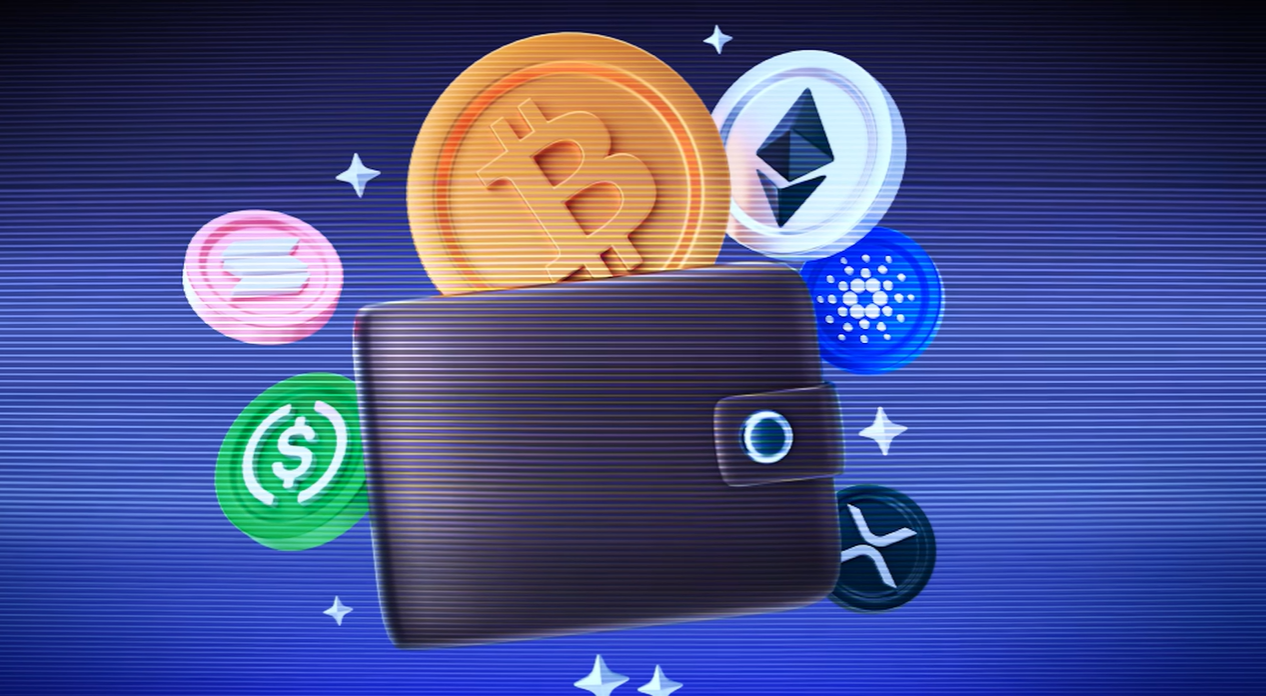What is the best crypto wallet 2027-2028
What is the best crypto wallet 2027-2028

As of this year, the landscape of cryptocurrency wallets continues to evolve, offering users a variety of options tailored to different needs. Here’s an overview of some of the top crypto wallets during this period:
Hardware Wallets (Cold Storage)
1. Ledger Nano X
- Security: Utilizes a secure chip (CC EAL5+) to store private keys, making it resistant to physical and digital attacks.
- Connectivity: Bluetooth functionality allows users to connect wirelessly to mobile devices, enhancing accessibility for everyday use.
- Multi-Currency Support: Supports over 1,800 cryptocurrencies, including popular ones like Bitcoin, Ethereum, and newer altcoins.
- Backup and Recovery: Provides a recovery phrase to help users restore their wallet in case it is lost or damaged.
.2 Trezor Model T
-
Security: Offers advanced encryption for added security.
-
User Interface: Features a touchscreen for easy navigation.
-
Open-Source: Open-source firmware audited for transparency.
-
Multi-Currency Support: Supports over 1,600 coins.
Mobile and Software Wallets
3. Trust Wallet
- Multi-Asset Support: Supports over 70 blockchains and 4.5 million assets, including NFTs and tokens.
- DeFi Integration: Built-in DApp browser to interact with DeFi and NFTs easily.
4. MetaMask
- Ethereum Focused: Ideal for DeFi and NFT transactions, supporting Ethereum and compatible blockchains.
- User Interface: Browser extension and mobile app.
- Advanced Features: Advanced transaction settings like gas fee customization.
Emerging Options
5. Bitkey by Block, Inc.
- Self-Custody: Designed for Bitcoin, offering a multisignature wallet that stores bitcoin independently of third-party exchanges.
- Inheritance Feature: Introduced an inheritance feature to enhance control and privacy for users.
- Device and App: Includes a hardware device and a mobile app, along with recovery tools in case the customer loses the phone or hardware.
Comparison Table:
| Wallet | Type | Key Features | Best For |
|---|---|---|---|
| Ledger Nano X | Hardware | Secure chip, Bluetooth, Multi-currency | Long-term storage |
| Trezor Model T | Hardware | Touchscreen, Open-source, Multi-currency | Advanced security |
| Trust Wallet | Mobile/Software | Multi-asset support, DeFi integration | Mobile users, DeFi access |
| MetaMask | Mobile/Software | Ethereum-focused, DApp integration | DeFi and NFT enthusiasts |
| Bitkey | Hardware | Bitcoin-focused, Inheritance feature | Bitcoin users |
Conclusion:
The best crypto wallet for you in 2027–2028 depends on your specific needs and preferences:
- For maximum security and long-term storage, hardware wallets like Ledger Nano X and Trezor Model T are excellent choices.
- For mobile users and DeFi enthusiasts, Trust Wallet offers a user-friendly experience with extensive support for various assets.
- For Ethereum-focused activities, MetaMask remains a popular option with robust DApp integration.
- For Bitcoin users seeking self-custody solutions, Bitkey provides a specialized wallet with enhanced control features.
Consider your specific requirements, such as the types of cryptocurrencies you hold, your preferred platforms, and your security needs, to select the most suitable wallet for your crypto activities.
Types of crypto wallet for this year
In this year, the types of crypto wallets remain fundamentally categorized by custody model and access method, but with new features adapted to increasing adoption, regulation, and advanced user needs. Here’s a comprehensive overview:
By Custody Type
1. Custodial Wallets
- Managed by a third party, such as an exchange (e.g., Binance, Coinbase).
- Pros: Easy to use, account recovery, often insured.
- Cons: You don’t control the private keys (not truly “your crypto”).
- Best for: Beginners, traders, or those who value convenience over sovereignty.
2. Non-Custodial Wallets
- You control the private keys (and therefore full ownership of your crypto).
- Examples: MetaMask, Trust Wallet, Exodus.
- Pros: Greater privacy and control.
- Cons: If you lose your keys/seed phrase, you lose access permanently.
- Best for: Security-conscious users and long-term holders.
By Access Type
3. Hot Wallets (Online / Connected)
- Always connected to the internet (e.g., browser extensions, mobile apps).
- Examples: MetaMask, Phantom, Rainbow, Atomic Wallet.
- Pros: Easy for trading, staking, interacting with DeFi/NFTs.
- Cons: More vulnerable to hacking and phishing.
4. Cold Wallets (Offline / Disconnected)
- Stored offline, not connected to the internet.
- Examples: Ledger Nano X, Trezor Model T, paper wallets.
- Pros: Extremely secure; immune to online hacks.
- Cons: Less convenient; higher learning curve.
By Usage Focus
5. Hardware Wallets
- Physical devices storing private keys offline.
- Popular brands: Ledger, Trezor, Bitkey (by Block Inc.).
- Used for long-term holding, especially of large amounts.
6. Mobile Wallets
- Apps for Android or iOS, often non-custodial.
- Good for daily use, QR payments, and staking.
- Examples: Trust Wallet, Exodus, Zengo.
7. Web Wallets
- Browser-based, sometimes custodial.
- Integrated into DeFi platforms, faucets, or games.
- Examples: WalletConnect integrations, Binance Wallet.
8. Desktop Wallets
- Software you install on a PC or laptop.
- Offers more control than web wallets, often used by developers.
- Examples: Electrum (Bitcoin), Exodus, Atomic Wallet.
Emerging & Advanced Types
9. Multisig Wallets
- Require multiple approvals to authorize transactions.
- Great for shared accounts (e.g., business, DAO treasuries).
- Examples: Gnosis Safe, Casa, Bitkey.
10. Smart Contract Wallets
- Built using on-chain contracts; programmable with rules.
- Examples: Argent, Safe (Gnosis).
- Often feature social recovery, gasless transactions, and DeFi integrations.
11. MPC Wallets (Multi-Party Computation)
- Keys are split among devices/parties — no single point of compromise.
- Example: Zengo Wallet.
- Rising in popularity for institutional and mobile use.
RELATED KEY WORDS
What is the best crypto faucet?
What is a faucet in crypto?
Do crypto faucets work?
Are crypto faucets legal?
Can police track crypto?
How do I withdraw from Crypto faucet?
What is the fastest way to withdraw crypto?
How to transfer faucetpay to bank account?
How do I cancel crypto withdrawal?
Are crypto faucets profitable?
How do faucets make money?
Are crypto faucets safe?
How do I earn crypto by faucet?
How do I withdraw crypto from tap?
